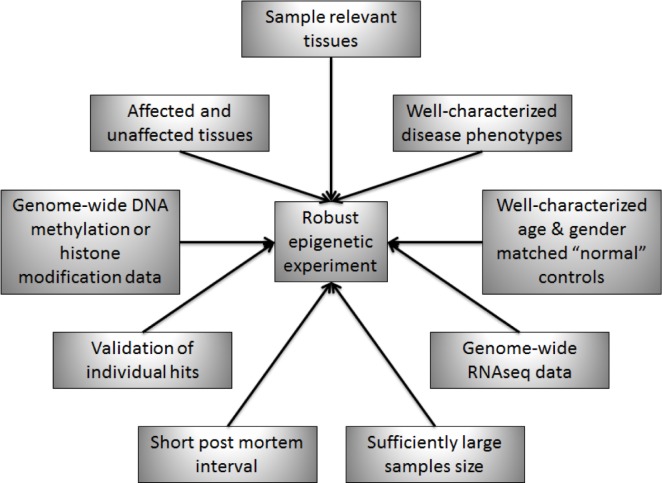Figure 6.
Ideal experimental setup for genome-wide epigenetic experiments. Each of these nine characteristics contributes to the production of meaningful epigenetic data that can be used to identify genes that are differentially methylated/modified in specific disease states. The combination of robust epigenetic data with RNAseq expression data provides additional information pertaining to the mechanism of disease by correlating expression changes with underlying chromatin modifying processes and providing initial insights into the mechanisms of disease. These studies identify genes and/or regulatory regions that potentially have causative roles in the development or progression of disease. Further mechanistic studies focusing on the roles of each correlated gene/regulatory region will then provide additional understanding of the disease and targets for therapeutic interventions. Incorporation of genetic and lifestyle data will also improve analysis by integrating the full spectrum of risk into studies of disease mechanisms.

